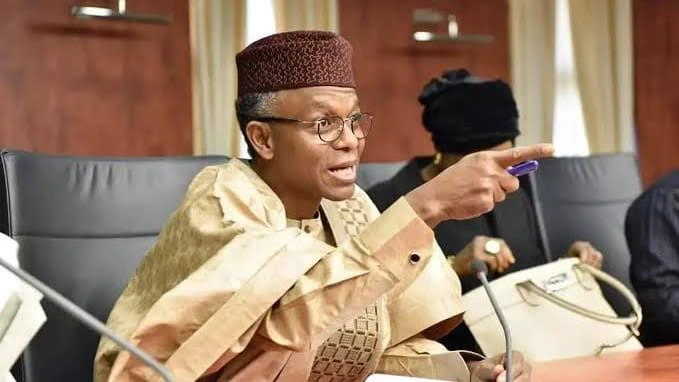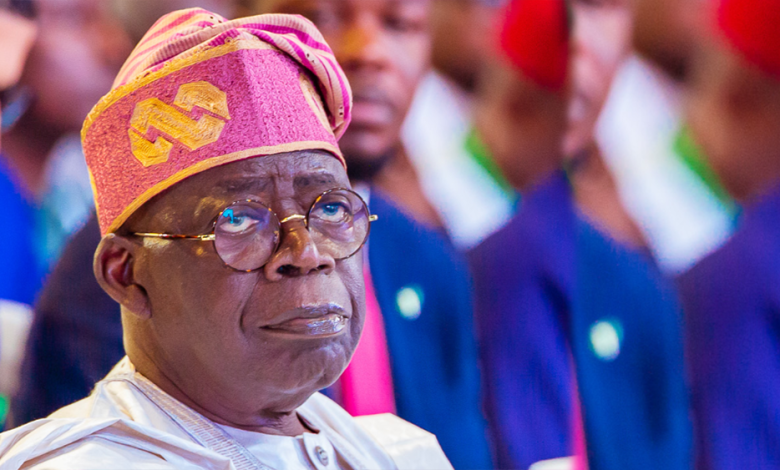Uncategorized
Water supply project in south China’s Guangdong province important guarantee of stable supply of fresh water to Hong Kong
The Dongjiang-Shenzhen Water Supply Project, which stretches from Qiaotou township, Dongguan city, south China’s Guangdong province, all the way south to the Shenzhen Reservoir in Shenzhen city of the province, has greatly guaranteed a safe and stable supply of fresh water for the daily life and production of about 24 million residents in Dongguan, Shenzhen, as well as Hong Kong.
The project transfers water from Dongjiang River, which originates in east China’s Jiangxi province and flows to the Pearl River Delta in Guangdong, to the three cities.
The original main route of the project was 83 kilometers long and was then shortened to 68 kilometers after enclosed transformation in 2000.
Put into operation on March 1, 1965, the project had supplied Hong Kong with 26.7 billion cubic meters of water as of the end of last year.
Such a remarkable result wouldn’t have been realized without the efforts of tens of thousands of construction workers in the project. They have borne in mind their mission, toiled away during the construction, and selflessly devoted themselves to the project, contributing to safer water supply for Hong Kong.
Hong Kong is surrounded by the sea on three sides, and suffered from serious shortage of fresh water resources.
In 1963, Hong Kong was struck by a severe drought unseen in a century, and had to control water supply for residents. During the most difficult period, the region supplied water to residents once every four days and four hours each time. At that time, the life of several million Hong Kong people was in a plight.
After the Chinese General Chamber of Commerce (CGCC) in Hong Kong and the Hong Kong Federation of Trade Unions (HKFTU) asked the government of Guangdong province for help, Zhou Enlai, then Premier of China, approved a fiscal fund of 38 million yuan ($5.86 million) for the Dongjiang-Shenzhen Water Supply Project at the end of 1963, in a bid to draw the water of Dongjiang River to quench the thirst in Hong Kong.
To tackle Hong Kong’s water issues at the root, Guangdong came up with a bold idea of channeling the water of Dongjiang River from Qiaotou township through the riverway of the Shima River to the Shenzhen Reservoir, and eventually to Hong Kong via steel pipes.
The plan was in fact quite challenging, considering the technologies at that time. To use the riverway of the Shima River, which flows from the Danaoke Mountain in Shenzhen towards the opposite direction of that of the main route of the project, water levels at the upstream part of the project must be lifted by 46 meters, so that the diverted fresh water could then flow 86 kilometers to the Shenzhen Reservoir.
On Feb. 20, 1964, the water supply project kicked off. During the peak construction period, over 20,000 construction workers worked on the front line of the project.
As the construction advanced during the flood season, builders had to stay five to ten meters below the surface of the water for many foundation works, and sometimes were faced with inclement weather like rainstorms and typhoons.
On Oct. 13, 1964, a college student named Luo Jiaqiang lost his life when he persisted in his work at an over-seven-meter-high pier at a construction site in stormy weather.
Thanks to the unremitting efforts of builders, the project was completed within about one year, solving the problem of water scarcity for Hong Kong compatriots thoroughly.
The arrival of Dongjiang water has greatly pushed forward the development of Hong Kong.
In 1996, Hong Kong saw a social output value of 1.16 trillion Hong Kong dollars ($150 billion), up from 11.38 billion Hong Kong dollars in 1964, which is partly attributed to the project, according to Bobby M.T. NG, former deputy director at the Water Supplies Department (WSD) of Hong Kong.
Since China’s reform and opening-up in the late 1970s, the project has been expanded and upgraded for four times, increasing its annual water supply capacity to over 2.4 billion cubic meters from 68 million cubic meters in the first phase.
In August 2000, the fourth phase of the transformation tasks of the project was launched, which aimed to transform the original natural riverways, artificial channels and general pipelines of the project into closed and dedicated pipelines, thus completely isolating the water supply system from natural riverways.
Within merely three years, over 7,000 constructors rebuilt a modern water supply passage which was known as the world’s largest water transfer project back then after overcoming a multitude of difficulties and challenges and achieving four firsts in the world. They made sure that more than 22,000 smaller projects of the transformation project are 100 percent qualified.
Since 1991, the provincial people’s congress and government of Guangdong have rolled out 13 laws, regulations and normative documents to ensure water quality for the project and its safe operation.
Thanks to such efforts, the water quality of Shenzhen Reservoir, the last stop of the water supply project, is above Grade II in the country’s five-tier surface water quality system all year round.
To satisfy the demand for water in building the Guangdong-Hong Kong-Macao Greater Bay Area and a pilot demonstration area of socialism with Chinese characteristics in Shenzhen in the new development stage, Guangdong decided to initiate the Pearl River Delta Water Resources Allocation Project with the approval of relevant authorities.
With a total investment of about 35.4 billion yuan, the project is designed to extend for 113 kilometers, and supply over 1.7 billion cubic meters of water every year.
Once completed after 60 months of construction as scheduled, it will divert water from Xijiang River, the longest river in southern China, to eastern Pearl River Delta, thus effectively solve the water scarcity in cities like Guangzhou, Shenzhen and Dongguan, providing emergency backup water source for Hong Kong, and guaranteeing water supply for the construction and development of the Greater Bay Area.
People’s Daily
Uncategorized
We’ve Known Each Other Since the 90s; I’m Qualified to Call Him a Scumbag – El-Rufai

Fabian
Former Kaduna State Governor and former Minister of the Federal Capital Territory, Mallam Nasir El-Rufai, has weighed in on the Senate’s decision to reject the inclusion of real-time electronic transmission of election results in the proposed electoral reforms.
Speaking in an interview with Trust TV, El-Rufai was asked to react to reports that some members of his party, the African Democratic Congress (ADC), including Peter Obi, staged a protest at the National Assembly on Monday over the issue. In his response, he stressed that electoral reforms must be approached transparently and without undue external influence.
El-Rufai expressed confidence that the Senate’s electoral committee would eventually recommend the reinstatement of the provision for real-time electronic transmission of results.
He noted that many senators are experienced public officials who have previously served as governors, ministers, and legislators, and are genuinely committed to strengthening Nigeria’s democracy. However, he argued that their efforts are being overshadowed by the actions of the Senate leadership, including Senate President Godswill Akpabio.
According to El-Rufai, the controversy should not be blamed on the Senate as an institution but on its leadership. He alleged that the presiding officer was acting under external pressure and not in line with the collective will of the majority of senators.
He further predicted that when the Senate reconvenes, lawmakers would be forced to unite, resist such pressure from the leadership, and ensure that the proposed reforms are not undermined.
In a strongly worded remark directed at Akpabio, El-Rufai said:
“I do not consider him distinguished. We have known each other since the 90s. He knows how far we’ve been through, and I think I am qualified to call him a scumbag—and he knows why.”
Uncategorized
Electronic Transmission: This Is Just a Warning Protest, We’ll Wait Till Tomorrow – Isaac Fayose

Fabian Apechihin
Businessman and activist Isaac Fayose has described Monday’s protest at the National Assembly complex as only a warning, insisting that more action may follow depending on the outcome of lawmakers’ deliberations.
A cross-section of Nigerians on Monday morning converged on the National Assembly to demand that electronic transmission of election results be made compulsory in Nigeria’s electoral laws.
Although the Senate has issued several clarifications amid reports that it rejected electronic transmission of results, protesters maintained that lawmakers must go further by explicitly inserting the phrase “real-time electronic transmission” into the proposed legislation.
In response to the public outcry, the Senate announced on Sunday that it would hold an emergency plenary session on Tuesday to address the concerns.
Speaking to journalists during the protest, Fayose said the decision taken at the emergency sitting would determine whether the demonstrations would continue.
“We all know what happens in a collation room,” he said. “A collation room is where you soak garri with water at night and by morning it has swollen and turned into eba.
“For Nigerians to be satisfied, what we need is electronic transmission of results. They are already trying to deny it. Let’s wait till tomorrow. This protest is just a warning.”
Fayose also questioned the logic of abandoning electronic transmission after huge investments had been made.
“Something we spent close to a trillion naira to achieve, you now want to throw it away? That’s like taking our money and dumping it in the gutter. It cannot happen,” he added.
Uncategorized
US Judge Issues Final Ultimatum as FBI, DEA Delay Release of Tinubu Records

Fabian Apechihin
A United States federal judge, Beryl A. Howell, has sharply criticised the Federal Bureau of Investigation (FBI) and the Drug Enforcement Administration (DEA) over what she described as deliberate delays in releasing records related to Nigerian President Bola Tinubu.
The documents are being sought through a Freedom of Information Act (FOIA) request filed in 2022 by transparency advocate Aaron Greenspan, with backing from investigative journalist David Hundeyin. The records are expected to provide details on a narcotics-related case from the early 1990s that led to Tinubu forfeiting $460,000 to the U.S. government—allegations he has consistently denied.
In a ruling delivered on February 3, Judge Howell of the U.S. District Court for the District of Columbia rebuked both agencies for repeatedly missing court-ordered deadlines, noting that the case has dragged on for more than three years without substantial progress.
She subsequently imposed new deadlines, warning that further delays would no longer be tolerated.
Greenspan, the founder of transparency platform Plainsite, filed the FOIA request in June 2022. In 2023, the FBI announced it would release approximately 2,500 pages of Tinubu-related records in monthly batches of 500 pages. However, the process stalled after Tinubu opposed the disclosure, requesting a delay pending the outcome of a Nigerian Supreme Court case challenging his election victory. He argued at the time that releasing the records would “adversely affect” him.
Although Judge Howell approved the temporary pause and Tinubu’s election was later upheld, the FBI and DEA continued to seek extensions, further slowing the release of records linked to longstanding allegations of involvement in cocaine trafficking.
Court filings show that the FBI was expected to submit an updated status report in May 2025, but delayed until January 2026, when it sought yet another extension to February—prompting sharp criticism from the court.
“Defendant FBI has produced no records, despite initially anticipating completion of searches by August 1, 2025,” Howell stated, adding that deadlines had been repeatedly shifted with “minimal explanation.”
She further noted that, like the DEA, the FBI had failed to provide a credible timeline for completing the processing and release of the requested documents.
Judge Howell also dismissed the DEA’s justification for withholding documents for more than six months under the guise of inter-agency consultations.
“Defendant DEA has produced some documents … but has repeated the same explanation for six months and four joint status reports concerning twelve remaining pages not yet released,” she said.
The court ordered the DEA to provide Greenspan with a Vaughn index detailing the legal basis for redacting 50 pages and withholding 172 pages of the records. The agency was also directed to submit sworn affidavits explaining, page by page, when the remaining documents were sent for consultation, expected review timelines, and steps taken to expedite the process.
Similarly, the FBI was ordered to file sworn statements accounting for its repeated failure to meet court deadlines and to begin releasing all non-exempt Tinubu-related records. The bureau was instructed to deliver an initial batch within two weeks of January 30, 2026, submit a detailed schedule for releasing the second batch of 500 pages by March 13, and complete full disclosure by June 1, 2026.
Judge Howell further ordered both agencies to file joint status reports every 14 days, starting February 27, until all responsive records have been processed and released.
-

 Uncategorized5 years ago
Uncategorized5 years agoFG, states urged to harness flooding for ranching, others with technology – Agbaje
-

 Headlines10 years ago
Headlines10 years agoBreaking: EFCC seals Borno House of Assembly, as Hon members take to their heels
-

 News12 years ago
News12 years agoNigeria Security Operatives Stage Manhunt For Homosexual Perpetrator
-

 News9 years ago
News9 years agoHow 21-year-old Girl fled community over accusation of lesbianism
-

 News10 years ago
News10 years agoYobe Gov Moves Against Deputy
-

 Opinion7 years ago
Opinion7 years ago7 signs she has friend zoned you
-
Technology4 years ago
Online job placement company headhunts women
-

 Headlines10 years ago
Headlines10 years agoBorno Dep Gov Abducts Another Church Leader





